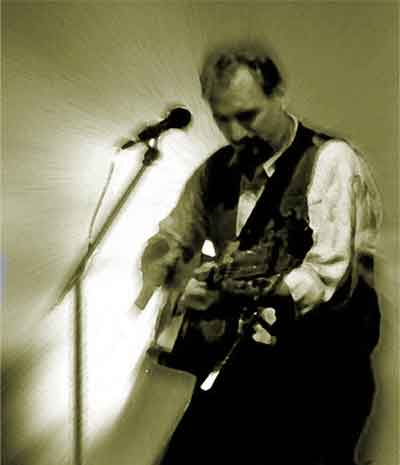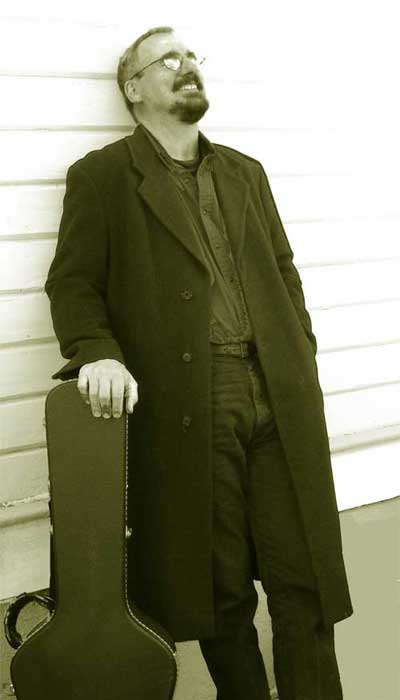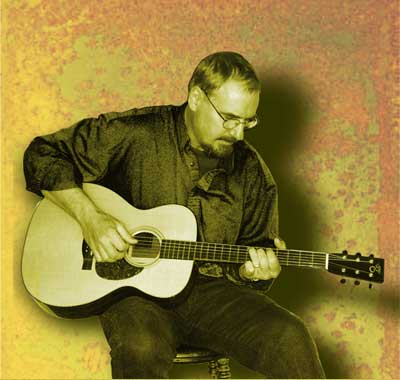“Todd Samusson demonstrates the powerful synergy that occurs when music and social awareness are combined. He's a talented storyteller with a special gift for thoughtful lyrics and beautiful melodies; one of the best acts to evolve out of the New Folk scene.”
- Jessika Ross, KDVS FM, Davis, California
“The vocals are absolutely stunning . . . . "
- John McClure, Victory Review
“Todd Samusson has the ability to truly connect with an audience. His music carries a strong feeling of inclusion and community. He reminds us of our humanity.”
- Robyn Shanti, KBOO FM, Portland, Oregon
“These are well written, hard-punching tunes full of social commentary, biting wit, and the pure joy of life.”
- Heartsong Review, Eugene, Oregon
Todd Samusson's songs deal with transformation: personal, spiritual, and political.”
- Lisa Lepine, Southeast Examiner
“Samusson’s folk-rock balladeering shows traces of songwriters from Woody Guthrie through Bob Dylan to Bruce Springsteen and Bruce Cockburn.”
- Dan Handelman, Portland Alliance
Some of the best songwriting I’ve ever heard. Music with feeling for thinking people.”
- Rosie Brooks, KKFI FM, Kansas City
“Whatever it is, it sure sounds good.”
- Becky Ohlsen, This Week Magazine, Portland, OR
“The world is very much in need of this kind of music and dedicated songwriters willing to follow their hearts.” - Sharleen Leahy, publisher/editor, Songs for Peace, Brooklyn, NY
“... a consistantly tuneful and thoughtful record. The music draws on country, folk, and gospel influences producing a comfortable weave ...”
- Tim Casebeer, Willamette Week, Portland, OR
“Todd Samusson and Linda Tomassi are one acoustic guitar, two gutsy voices, and ten impassioned songs. They display a deep concern for ecology, peace, and social justice, and their fervor for the worker shows on such songs as ‘Wings of Music’, ‘Labor Day’, and ‘Folks ‘Round Here’. Their sound is so majestic, given their necessarily sparse arrangements, that you wish for their sake they could have scraped together a full band; but then, the primal vocal finale on ‘When the Walls Come Down’ is more powerful than an entire orchestra.”
- Dirty Linen Magazine, review of The Jericho Mine, Samusson & Tomassi’s debut album



Q: What's your songwriting process?
TS: I wait for a song to show up and then write it down.
Q: That's it?
TS: Sometimes, that really is it. Actually I tend to write in bursts. I'll have an idea that might kick around my brain for weeks, months, even years before I actually sit down and try and wring a song out of it.
Q: Words or music. What comes first?
TS: Why does everybody always ask that particular question? What difference does it make?
Q: Probably none. But which comes first?
TS: It can come either way. I tend towards this approach: I'll have a snippet of lyric - a phrase or a line - that has been hanging around a while. At some point I'll pick up a guitar and play a few chords and search for a musical feel. Then it can turn into a melody. There are some occasions when I'll have written entire verses and choruses without any music. Sometimes they come together. If the music comes first, it's usually because I have a guitar in my hands.
Q: What kind of guitar?
TS: For songwriting it's an old 1957 Epiphone jumbo acoustic with an arched back. It's the first guitar I ever owned and it is usually the one closest by. For performing I work with a Martin HD16 and more recently I've been playing a Santa Cruz OM-PW.
Q: What's the story behind the song The Stories of Your Life?
TS: My wife, Paula, used to be the director of a community media center. And her work in that world was to help bring people to voice. To allow them to tell their stories primarily through the use of television. I felt that this was a powerful form of community organizing because having a voice is basic human empowerment. So I wanted to write about that. I wanted to express the idea that everybody has a story and, in fact, we all have many stories. And the road to community, to peace, to justice, is to hear eachother's stories. A voicefor every heart.
Q: Field of Vision is another one that intrigues me. What's behind that song?
TS: That one is hard to explain. It's similar to the idea that we all have stories. But in this case, we all see the world through our own eyes. A lot of communication between humans is around how we see the world. A community, a society, is made up of collection of visions. But I can't truly pin down that song and say, "it means X." It's better off left unexplained.
Q: Who are your writing influences?
TS: I don't know if they influence me, but I can tell you who I like as songwriters. The obvious ones: Dylan, the Beatles. I like the work of Bruce Springsteen, Joni Mitchell, Richard Thompson, John Hiatt. There's David Crosby, Neil Young, Steve Earle, Laura Nyro. There's Jackson Browne, Lou Reed, Lucinda Williams, Jeff Tweedy, Eliza Gilkyson. I love the wortk of Alejandro Escovedo, Shawn Colvin, Woody Guthrie. All these folks have great lyrcis and solid melodies. The there's the work of Los Lobos, the Neville Brothers. I 'm a fan of the Grateful Dead. I like a lot of the indie singer-songwriters I hear as long as they have something to say in their lyrics.
Q: The Jericho Mine, the first Samusson & Tomassi album, has some interesting tunes. Any comments on The Dying of the Light?
TS: That's a song that came in a vision. I had these images of our country, our society falling apart and slipping into darkness. That song is a glimpse of the sunset of America. It's a companion piece with another one on the album, When the Walls Come Down. They are ways of looking at potential societal collapse but still finding some hope in that vision.
Q: How about Wicked?
TS: I should start playing that one again. It's a crime story. A bank robbery gone wrong that leads to mayhem, murder, arrest, conviction, and remorse. A real happy song.
Q: And how about Homecomer's Waltz?
TS: Well, I don't write enough waltzes, so that one is special to me. The song was inspired by a news story I heard on 'All Things Considered' back around 1989. It was about a place in Kansas called The Land Institute where a guy named Wes Jackson was working to develop and promote methods of sustainable agriculture. There has been a huge decline in the number of folks who are farmers. Jackson and his associates were trying to encourage a resurgence in small family farms. They called the people who returned the the land "homecomers." I was building a music studio when that story came on NPR. I dropped my tool belt and wrote a lot of the lyrics on a scrap of plywood. Here we are 20 years later and sustainability has finally begun to go mainstream.
Q: Is that common - to have a song hit and drop everything to write it?
TS: It is when I let it happen. I lose more songs than I write because I don't stop what I'm doing. But, yes, I get hit with ideas at strange times. It happens a lot when I'm driving. I'm constantly finding scraps of lyrics in my van. Unfortunately they are often illegible because I wrote them while still driving. I once wrote an entire song while driving along a twisty mountain road in North Cascades National Park. I have no idea why I didn't just pull over. Something about the motion, the movement brings out the song.
Q: What was that song?
TS: This will sound odd, but it's called The Song That Has No Name.
Q: Because you couldn't think of one?
TS: No, because the last line of the chorus says: "you are the song that has no name."
Q: What's the best part of songwriting?
TS: When it really starts to flow. When the mind shuts off and things just fly through me. Most of my best songs feel as if I had nothing to do with writing them. All I did was get out of the way and let the river roll. It's a great sensation. I feel tapped into something huge but I have no idea what.
Q: A lot of songwriters say that.
TS: It's the nature of art. I do graphic work and sculpture and the same thing happens. The best work comes when I get out of the way and don't try to force it. Art will find a way.
Q: You've co-written some tunes with Mark Bosnian. How does that process work?
TS: That's very different than songwriting alone. I tend to be more intentional and deliberate when co-writing because we have to have some common understanding. But I like it because it forces me to be disciplined about the craft of songwriting. After all, you actually have to schedule a time to get together and say, "this is when we're going to write songs" so you better come prepared to deliver. I really like most of what we've written together.
Q: What are some of the ones you like best?
TS: Carry Me Over is one of my favorites. Also, My Father's Hands, If I Lose My Way, These Shoes, A Guy Like Me. Mark has put several of our collaborations on his albums.
Q: What advice would you give to someone wanting to write songs?
TS: Write it ALL down. You never know when you can use a line or a phrase somewhere. Also, don't write for commerce - write for life. The world is full of mediocre pop songs. Write something that means something to you and others.
Q: What else?
TS: Read books, magazines, newspapers. Go to movies. Listen to other music. Be in the world. Experience people, culture, life, art, nature. Be curious. Listen to people's stories. Ask questions. Observe things. Imagine yourself in other people's places. Have experiences. Be a human being and then write about it.